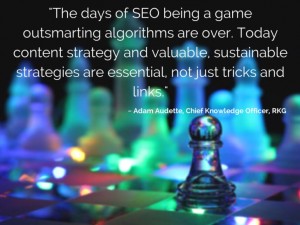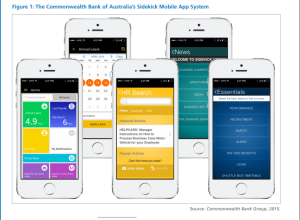— January 14, 2019

Free-Photos / Pixabay
In the world of HR, we have competency models that guide recruiting, learning, performance, and promotion. These models focus in areas of leadership, professional skills, and functional knowledge. What could possibly be missing?
According to Deloitte’s Human Capital Survey, employees are changing jobs more rapidly than ever before. For organizations to remain competitive as an employer of choice, they must: 1) develop employees more quickly, 2) move them more regularly, 3) provide continuous cycles of promotion, and 4) give employees more tools to manage their owncareers.
Although it’s the employees seeking these career management and development tools and resources, organizations can benefit as well. Imagine a high potential mid-level manager that has been asked to apply for a director-level role. She hasn’t updated her resume or brushed up on interviewing skills for over 10 years. If she doesn’t present herself strongly in the search process, everyone risks losing out on a great opportunity to add value to one’s career and to the organization especially related to retention, hiring costs, and employee engagement.
Not only are career management skills necessary to advance internally, employees are seeking guidance in determining what their purpose and passion are and how they best fit in their organizations. They seek mentoring, support building networks, and much more.
Employers that provide career management tools, resources, and support inside their organization may experience a competitive advantage in hiring, developing, advancing, retaining, and engaging talent. In times where engagement numbers are shockingly low, while competition for talent is incredibly high, this is a vital consideration.
Let’s begin by defining a few core career management competencies.
Career Management Competencies
A foundational component to career management involves the identification of career competencies that will support your employee’s needs in the areas of managing their careers and developing the skills needed to do so effectively. Consider the following 5 career management competencies to start.
- Career Planning:Similar to an organization’s business plan, individuals need a career plan. Their greatest earning asset is the professional service they offer to their employer, yet they often have no strategic plan. When asked, “What do you want to do next?” employees may not be prepared to communicate what they want, why they want it, or have a plan to get there. A career planning skill set will ensure an employee can answer:
- What are my interests, needs, and wants?
- What is my value to the organization?
- What skills do I need to develop? How will I develop them?
- What role am I aspiring to next and what is my plan to get there?
- Personal Branding: Reputation is everything. Understanding your personal brand and how you influence it in the workplace is vital to managing your career. This may include development of interpersonal skills related to conversational technique, presentation, email and writing tips, image, and how you manage emotions. It includes marketing components such as your bio, credentials, internal resume, and social media activity.
- Networking: Building relationships is vital to career success. Building a personal career advisory board is only possible through nurturing a strong network over time. There is a quantity component but more importantly, there is a quality consideration. Networks include community, life, and professional acquaintances, colleagues, mentors, and sponsors. They may range from 1000 Facebook friends to one or two mentors. Employees want to know how to build and nurture these relationships to support their contributions in their current role, as well as their future roles. They want to know how to best prepare for networking events and conferences they attend and how to follow-up effectively.
- Interviewing: Organizations typically train people on how to interview candidates but rarely provide training or insight when the employee is on the other side of the table. Employees need to understand the interviewing style preferred by their organization. They need to know how to use stories and real-life examples to bring their accomplishments to life. Interviewing is not a skill that comes naturally for everyone, yet it is critical to advancing within the organization.
- Conversational Intelligence: It’s one thing to know what you want to do and another to be able to confidently share it and seek support to get there. Employees want to know the following:
- How do I talk about career opportunities?
- When is the best time to approach my manager with my interests?
- What role does HR play in my career?
- When asked, “What do you want to do next?” am I clear and confident?
As employees learn to take ownership of their own careers, employers may find that they advance employees not only into the roles where they will add value, but also are most fulfilled and engaged!
Let’s learn from each other!
- What career management and career development competencies are your employees wanting to develop?
- How are you meeting the needs of employees within the area of career management?
- What is your biggest challenge in offering career management support?
Business & Finance Articles on Business 2 Community
(71)








